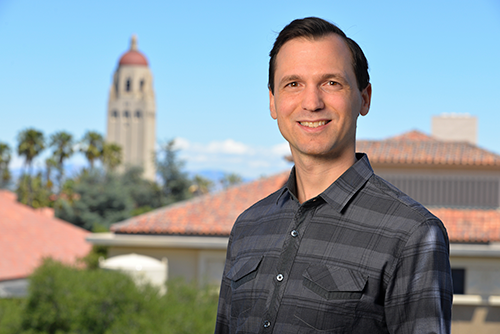The 3rd IEEE Workshop on
| ||||||
| About | Keynotes | Dates and Submission | Program | Student Travel Support | Organization | HMData 2018 |
About IEEE HMData 2019Overview
Human power is a key factor to maximize the impact of bigdata technologies. This workshop addresses human-in-the-loop approaches in bigdata lifecycle - in collecting, processing, analyzing, utilizing, archiving and disposing them. The purpose of this workshop is to give excellent opportunities for students, researchers and practitioners to identify important research problems and exchange their ideas on human-in-the-loop in the bigdata context. To make the workshop an attractive place for those people, we solicit practitioner papers as well as research papers, in order to facilitate discussion among researchers who know solutions and practitioners who know problems.
We also would like to make the place valuable for young researchers.
All papers accepted for the workshop will be included in the Workshop Proceedings published by the IEEE Computer Society Press, made available at the Conference.
Topics
This workshop covers a wide range of human-related topics in the bigdata context, such as crowdsourcing, collaborative recommendation, crowdsensing, workflow model for humans and machines, incentives, human-assisted bigdata analysis, bigdata-human interaction, supporting tools for humans in human-in-the-loop systems, security and privacy in human-machine collaboration , human factors and ELSI (ethical, legal and social issues) in human-in-the-loop systems, and human-machine collaboration in real-world problems.
Keynotes
Computation and Organization
Michael Bernstein (Stanford University) 
Abstract: Can computation amplify our ability to achieve complex collective goals?
Today's techniques in areas such as crowdsourcing often fall short of this vision, in large
part because their architecture is based on workflows, which are so inflexible that
they can only be used for simple and modular goals. In this talk, I offer an alternative
architecture based on computational organizational structures, and demonstrate that this
approach enables groups to flexibly collaborate toward complex and open-ended goals such
as product design, software engineering, and top-tier research. I will introduce techniques
that fluidly assemble flash organizations and continuously adapt their efforts, evolve team
structures and membership over time, and coordinate volunteers around the world in pursuing
open-ended research. This research argues for a shift away from crowdsourcing as simple
microtasks, wiki edits, or competitions, and toward computational systems that proactively
aid groups in working together nimbly, reactively, and effectively toward complex goals.
Bio:
Michael Bernstein is an Associate Professor of Computer Science at Stanford University, where
he is a member of the Human-Computer Interaction group. His research focuses on the design
of social computing and crowdsourcing systems. Michael's research has received awards at
premier computing venues, and he has been recognized with an NSF CAREER award and an
Alfred P. Sloan Fellowship. His Ph.D. students have gone on both to industry (e.g.,
Adobe Research, Facebook Data Science) and faculty careers (e.g., Carnegie Mellon,
UC Berkeley). Michael holds a bachelor's degree in Symbolic Systems from Stanford University,
as well as a master's degree and a Ph.D. in Computer Science from MIT.
ProgramLabels: [FR] - Full Paper (Research-oriented), [FP] - Full Paper (Practice-oriented), [R] Project-in-Progress Paper (Research-oriented), [P] Project-in-Progress Paper (Practice-oriented)8:50 Opening (WS Chairs)8:55-10:10 Session 1 (Chair: Atsuyuki Morishima)8:55 [FR] Icaro Alzuru, Aditi Malladi, Andrea Matsunaga, Mauricio Tsugawa, and Jose A.B. Fortes. Human-Machine Information Extraction Simulator for Biological Collections9:20 [FP] Munenari Inoguchi, Keiko Tamura, and Ryota Hamamoto. Establishment of Work-Flow for Roof Damage Detection Utilizing Drones, Human and AI based on Human-in-the-Loop Framework 9:45 [R] Thi Tran, Rohit Valecha, Paul Rad, and H.Raghav Rao. Misinformation Harms During Crises : When The Human and Machine Loops Interact 9:57 [R] Pedoro Cardenas, Georgios Theodoropoulos, Boguslaw Obara, and Ibad Kureshi. Analysing Social Media as a Hybrid Tool to Detect and Interpret likely Radical Behavioural Traits for National Security 10:10-10:30 Coffee Break10:30-12:25 Session 2 (Chair: Satoshi Oyama)10:30 [FR] Pei-Yu Hou, Jing Ao, Andrew Rindos, Shivaramu Keelara, Paula J. Fedorka-Cray, and Rada Chirkova. Collaborative Workflow for Analyzing Large-Scale Data for Antimicrobial Resistance: An Experience Report10:55 [FR] Masafumi Hayashi, Masaki Kobayashi, Masaki Matsubara, Toshiyuki Amagasa, and Atsuyuki Morishima. Incentive Design for Crowdsourced Development of Selective AI for Human and Machine Data Processing: A Case Study 11:20 [FR] Kousuke Uo, Masaki Kobayashi, Masaki Matsubara, Yukino Baba, and Atsuyuki Morishima. Active Learning Strategies for Hierarchical Labeling Microtasks 11:45 [FR] Jordan Hosier, Vijay K.Gurbani, and Neil Milsted. Disambiguation and Error Resolution in Call Transcripts 12:10 [R] Hinako Izumi, Masaki Matsubara, Chiemi Watanabe, and Atsuyuki Morishima. A Microtask Approach to Identifying Incomprehension for Facilitating Peer Learning 12:25-14:00 Lunch14:00-15:40 Session 3 (Chair: Alex Quinn) 14:00 Keynote by Michael Bernstein (Stanford University)
| ||||||
